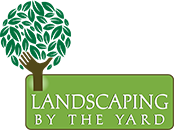Boundary or privacy hedges need to be plant species that grow tall and dense, and should thrive in the local climate. In today’s post, local landscape design contractor Landscaping by the Yard shares the best plants that will work best as boundary hedges.
Bitter orange (Citrus × aurantium)
Also known as sour orange, bigarade orange or marmalade orange, this citrus plant is native to Southeast Asia but has since spread to different parts of the world. The bitter orange fruit is not edible, but is widely used for cooking, particularly in production of marmalade. The plant itself is a fast-growing and dense shrub, with thorny branches that provide an additional layer of security. As an evergreen plant, it can drop leaves in as often as every week.
Arizona rosewood (Vauquelinia californica)
Arizona rosewood is an evergreen shrub native to Arizona and most areas in the Southwestern United States. It can be trained as a hedge or a tree with pruning, and can grow up to 15 feet in height. Apart from occasionally cleaning the small brown fruits that drop in the fall season, Arizona rosewood is pretty much low-maintenance.
Carolina laurelcherry (Prunus caroliniana ‘Compacta’)
Also known as Carolina cherry laurel, Carolina cherry or cherry laurel, is a small evergreen flowering tree that’s native to the Southwest. It flourishes in almost any environment and it can form a dense canopy that makes it a good choice for boundary hedges. Crushed leaves emit a fragrance that resembles maraschino cherries or almond extract.
It should be noted that Carolina laurelcherry leaves contain high amounts of cyanogenic glycosides that break down into hydrogen cyanide, a toxic substance, which makes it a potential toxic hazard to children and animals. However, this makes Carolina laurelcherry ideal for protecting your property against foraging animals. The cultivar Prunus caroliniana ‘Compacta’ grows to about half the usual size of this species.
Landscaping by the Yard is your leading provider of landscaping services, including deadwooding. Give us a call at (928) 285-1373. You can also fill out our contact form to schedule an appointment.

